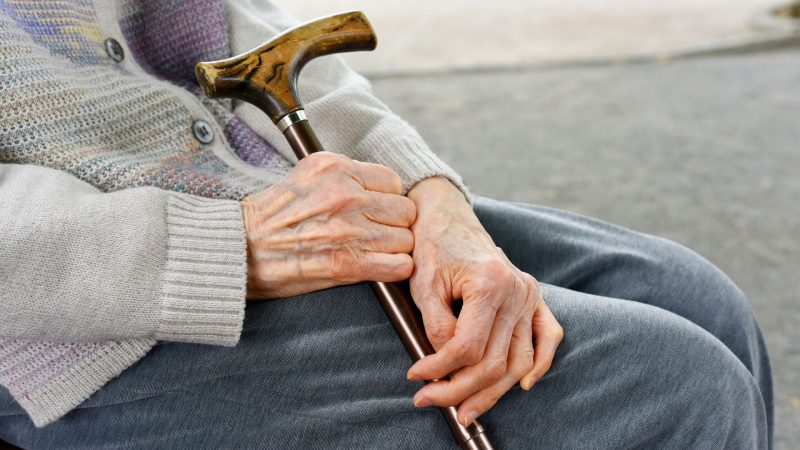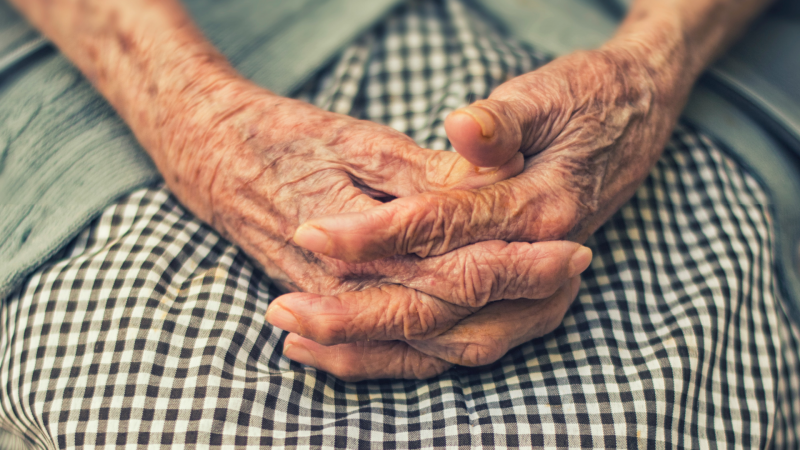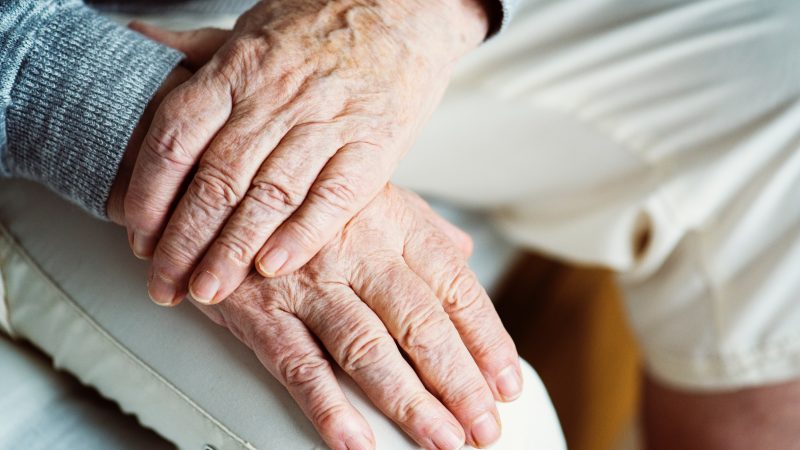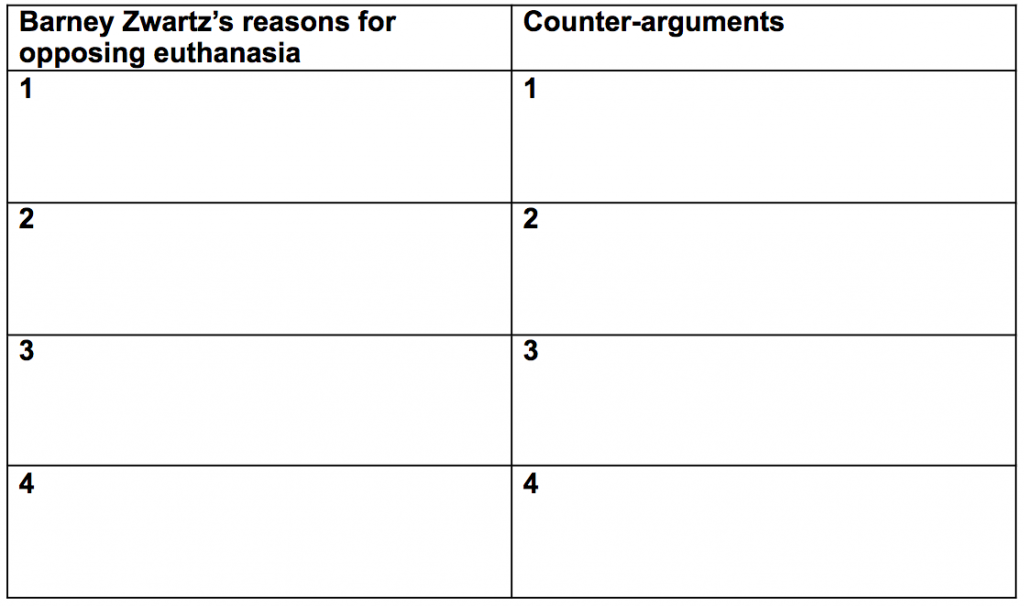Youth Resource
Human Dignity: End of Life
The videos, articles, and suggested activities in this Classroom Resource explore how biblical ideas of universal human dignity shape how Christians have seen and treated the elderly and terminally ill.
This is a sensitive topic where students may have strong opinions, sometimes based on personal experience. Thus, it should be handled with care.
Videos
-
Euphemising euthanasia (Part 1)
Bioethicist Margaret Somerville discusses how we talk about life, death and dignity.
Transcript
SIMON SMART: 21st-century medical advances have in some cases outstripped our ability to process the complex ethical questions that go with them. But not to worry, help is at hand: Professor Margaret Somerville is an internationally renowned ethicist from McGill University in Montreal. She’s thought about these questions for decades. She’s the author of several books including The Ethical Canary and the upcoming Bird on an Ethical Wire: Battles about Values in the Culture Wars. She was in town to deliver a lecture at Notre Dame University called ‘Death Talk: The Case Against Euthanasia’.
Margaret Somerville, welcome to CPX.
MARGARET SOMERVILLE: Thank you.
SIMON SMART: Now we’ve all known people who’ve suffered at the end of life – it’s not hard to see why people are attracted to the idea of euthanasia, is it?
MARGARET SOMERVILLE: No, and the suffering individual who’s competent and believes that there’s nothing ethically or morally wrong with euthanasia is the strongest case for legalising it. That’s the case that I think we have to deal with, as people who are against euthanasia – as I am – and it’s often put in terms of right to autonomy, right to self-determination, right to control, suffering is equated to a loss of dignity – and they think you can’t do anything to give them back a feeling of dignity. And so the way that the pro-euthanasia case is argued is that their dignity is restored by putting them out of their suffering with a lethal injection.
And I just want to make it very clear what euthanasia is. Euthanasia is when a doctor has a lethal injection, gives it to the patient, intending to kill the patient. And in Canada euthanasia has been brought in as legal by never using the word ‘euthanasia’, never using the term ‘assisted suicide’. And what it’s called in Quebec is ‘medically assisted death’ and in the rest of Canada they call it ‘physician assisted death’. In one big survey of about 2000 people, 60% of the Quebecers who voted for this didn’t understand that ‘medically assisted death’ was a lethal injection. They were shocked!
SIMON SMART: Well this is where you say the language we use on this topic is critical in understanding it?
MARGARET SOMERVILLE: It’s absolutely critical. So first of all, what we do is, I call it ‘euphemising euthanasia’. We put nice, soft, cuddly words on it – we put a white coat on it, because we are used to thinking doctors don’t do bad and unethical things, we think that doctors heal and cure you. So there’s a big project of promoting euthanasia as just ordinary medical treatment, just a little step along the way from what we already accept, such as rights to refuse treatment, turning off respirators when that is an unwarranted invasion, giving fully adequate pain management even if it could shorten life but if it’s done properly that is extremely rare.
But it’s not a tiny little step from that. A physician intervening with an intention to kill is a radical change in the law; it’s a radical change in medicine having physicians doing that; and it’s a radical change – this is the biggest change of all – in the most fundamental of society’s values, namely, respect for life.
SIMON SMART: Yes, and so this question around freedom to choose which seems to be an ultimate good now in our society – do you think that’s what’s lying beneath most of this discussion?
MARGARET SOMERVILLE: Yes, but I think it’s an expression of something else. I think what it is, is that we naturally and understandably all have a fear of death. We always have a fear of the unknown. And we used to deal with that fear in a given place, at a certain time, once a week. We went to synagogue, mosque, prayer house, church, whatever it was, you know? And people haven’t got that place to engage in what I call ‘death talk’, that is, we have to discuss death around some situation and with other people to be able to live reasonably comfortably with the knowledge that we will die.
SIMON SMART: So what’s lost then when we’ve moved away from that weekly engagement with a community and a story that’s bigger than ourselves?
MARGARET SOMERVILLE: Well, we’ve got no way to control that fear, and we haven’t got any way to convert it into something that we feel that for the next week we can live with until we talk about it again. And I think death has leaked out, it’s like it’s everywhere – even if you look at the movies and violence on television, things like that. And in a way that’s a way of trying to control death – what the social psychologist called a ‘terror management’ device, and they don’t mean ‘terror’ in the sense of ‘terrorists’ that we talk about now, what they meant it as was that we’ve got this intense fear, it creates a free-floating anxiety, and somehow control of fear makes us feel better. So euthanasia can be seen as a control mechanism for the fear of death, because we’ve lost our other control mechanisms of it.
close
Articles
-

Are the only reasons to oppose euthanasia religious ones?
Barney Zwartz offers a secular case for not legalising assisted dying.
-

What is a “good death”?
Natasha Moore explores the question: “What does it mean to die well?”
-

When we are old: dignity in aged care
Stephanie Kate Judd asks if our experiences of caring for our elderly can tell us something about what it means to be human.
-

The truth about dying
Palliative care doctor Megan Best explores the controversial topic of euthanasia.
-

A completed life
In light of the Dutch “completed life” bill, Natasha Moore ponders the distinction made between a person’s biological and biographical life.
-

It’s out with the old as Christian values fall away
Could a decline in Christianity combined with ageing population signal a social storm?
Engage
- Read the TED Ideas article Death is not the end: Fascinating funeral traditions from around the globe and answer the following questions:
- Which tradition stands out to you most? Why?
- What light does the funeral tradition you chose shed on the beliefs and values of that cultural group?
- Read the blog post 22 of the most powerful death & dying quotes ever written and complete the following activities:
- Which quote do you most identify with? Why?
- Using this list as inspiration, write your own short quote that encapsulates something of your beliefs about death. Turn it into an image similar to the ones in the article.
- Mark on the scale to what extent you agree or disagree with these statements:
- People with terminal illnesses should be able to choose when and how they die.

- People who oppose euthanasia lack compassion for those who are suffering.

- As a society we have a strong track-record of caring for the elderly and the terminally ill.

- People with terminal illnesses should be able to choose when and how they die.
Understand & Evaluate
- Watch the video interview with Margaret Somerville Euphemising Euthanasia (Part 1). Complete the Compass Points Thinking Routine for this video:
- Where do you see Eye to Eye with her argument?
- What do you find Worrisome about her argument?
- What else do you Need to Know in order to evaluate her argument?
- What is your current Stance on her argument?
- Read Barney Zwartz’s article Are the only reasons to oppose euthanasia religious ones? Using this table, summarise Barney’s four non-religious reasons to oppose euthanasia in your own words, and come up with a counter-argument for each one. Afterwards, answer the question: Are you personally persuaded by Barney’s arguments? Why or why not?

- Read Natasha Moore’s article What is a “good death”?, Stephanie Kate Judd’s article When we are old: Dignity in aged care, and Megan Best’s article The truth about dying. Choose one of the authors and complete the Step In, Step Out, Step Back Thinking Routine:
- Step In: Given what you read in this article, what do you think this person might feel, believe, know, or experience? (In particular, focus on what it seems they believe about what it means to be human, and the value of human life).
- Step Out: What else would you like or need to learn to understand this person’s perspective better?
- Step Back: Given your own exploration of this perspective so far, what do you notice about your own perspective and what it takes to choose to adopt somebody else’s?
Bible Focus
- In small groups, read the following Bible verses and create a mind-map to summarise what they teach about aging and death.
- Isaiah 46:4
- Leviticus 19:32
- Proverbs 16:31
- Job 12:12
- Job 14:5
- Ecclesiastes 8:8
- Hebrews 2:14-15
- Isaiah 25:6-8
- Revelation 21:1-4
- Choose one or two of these verses that you think are particularly counter-cultural in our society today. Create a two-minute video presentation explaining why you chose that verse, and how you think our society would change if more people believed it.
Apply
- Brainstorm a list of ways in which society, your school, and you as an individual could value the elderly and terminally ill more.
- Considering the issues explored in this class, read Natasha Moore’s column A completed life, and jot down your own thoughts in response to her three reflection questions.
- In light of everything you have explored on this topic, write your response to the question ‘What is a “good death”?’ (max. 200 words).
Extend
- Read John Dickson’s article It’s out with the old as Christian values fall away. Write your own opinion piece in response to this one.


